Reporter: It would seem that the investors have not been pleased with the recent proposal of the company to distribute free shares and to keep the profit within SIF Transilvania, judging by the evolution of the price of the SIF3 stock. How would you comment on that?
Mihai Fercală: I don't know whether the drop of the price was caused by the proposal of SIF Transilvania or by other events which have led to the drop of all the stocks on the Bucharest Stock Exchange.
The operation of increasing the share capital by offering free shares - one new share for each old share held -is clearly more profitable to investors compared to the situation where we would have completely paid out the net profit in the form of dividends.
Had we done that, that would have meant a dividend of 17 bani per share.
If we give free shares, assuming the General Shareholder Meeting accepts the proposal, and the share capital gets doubled, and the trading price will fall by half, even though we don't know for sure that the market will react like that or not, then a new share received free of charge will be worth 30 bani instead of 17.
Anybody that runs the numbers all the way through can find that the proposal of the directorate and of the Supervisory Board SIF Transilvania is clearly more beneficial to the shareholders.
I haven't seen any investors operating on the stock market complain publicly in the case of Banca Transilvania, which has offered free shares instead of dividends for years. No one came out to say they are unhappy with that policy.
Furthermore, by keeping the money within SIF Transilvania, we have the possibility of radically restructuring our portfolio, which was affected over the last few years, due to the payment of very high dividends, of about 85-90% of the net profit. The remaining amount is not enough to make a radical restructuring of the portfolio by replacing non-performing assets with performing ones.
Reporter: What restructuring do you have in mind?
Mihai Fercală: Unfortunately, we still have in our portfolio lots of companies that are not listed, companies which we have owned since the initial allocation of 1992, when we were created as a Private Ownership Fund. Those companies are very hard to make profitable, very hard to take public and very hard to sell.
In many companies, we are not majority shareholders, because we have started off from a 30% initial stake. If the majority shareholder doesn't want to take the company public, we have nothing to do and we are held captive, with those stakes and with those assets, without having the possibility to sell them at prices that would give us a minimum profit - at the face value at least.
Given that kind of circumstances, we need significant financial resources, which we can only get by making obtain from that profit, which would allow us to buy other assets in the sectors we have identified as having growth potential this year and in the coming years, such as energy, drugs, commodities processing, financial industry, banking. Without sizeable investments in the acquisition of listed assets, in the near future, our portfolio will not generate particular sales. If we follow the theory that we are distributing alarmingly high levels of the profit that we make in the form of dividends, we would essentially be planning to liquidate the SIF in the next 2-3 years.
The moment we've finished selling the liquid assets, we will no longer have anything else to sell, and when that time comes, not only will the SIF not be making any profit, but the question arises whether the SIF can continue to operate or not.
Reporter: Are you considering grouping assets in holding structures, like SIF Banat Crişana and SIF Moldova did?
Mihai Fercală: We can think of many things, but we don't know what they would be useful for. We could, for instance, group into a holding all the stakes we have in tourism. Unfortunately, I don't know if that would help increase the profitability of those assets, even though we have made significant investments in tourism. All the companies in this segment, are profitable, but the profit they can afford to distribute to the SIF, as their majority shareholder, is rather small. So, even if I were to unite all of them into a holding, I don't know what we could do. This year, we will try to sell some of our assets in the tourism sector, the ones that are functional, and we hope we will earn some appropriate proceeds from those sales, which would allow us to invest in other sectors.
Reporter: This year, you have listed three companies from your portfolio on Sibex and not on the BSE. What were the reasons?
Mihai Fercală: There was no special reason for us to choose Sibex as opposed to the BSE. Perhaps just the fact that the people at Sibex moved a lot faster than those at the BSE. Our interest was to take a few our assets public on the alternative trading system. This was a response to the need to meet certain legal requirements concerning the risk in our portfolios, namely to lower the weight of unlisted assets to less than 20% of the portfolio.
Reporter: What is their current weight?
Mihai Fercală: Right now, they are less than 20%, following these listings. Essentially, we are fully compliant with the all the prudential requirements of the Financial Oversight Authority, as well as within the norms concerning the management of risk at SIF Transilvania.
Reporter: Do you have any other listings planned in the coming period?
Mihai Fercală: As we come to the conclusion that more companies can be listed on the alternative trading system, we may do so. Right now, on the occasion of the annual statement, we are conducting a review of all the stakes that we have and one or two months from now we will uncover other companies that could get listed.
Reporter: You recently sent a letter to Dan Radu Ruşanu, who was, at the time. the president of the Financial Oversight Authority, in which you spoke about discrepancies between the legislation and the regulations of the ASF, as well as about the talks concerning the holding limit at the SIFs. Mr. Mircea Ursache also told us that he is postponing the proposals until 2015, as this is an electoral year.
Mihai Fercală: I don't think that this kind of talks has anything to do with the electoral years or not. We have to start off from a different element, not from what an authority, a broker, or an investor may want, but from what the SIFs actually are. They are private companies. In private companies, the amendment of the articles of incorporation, setting the rules of the game are exclusively the responsibility of the shareholders. You can't have someone from the outside set a restriction on a company or eliminate one. I am wondering what the difference is between SIF Transilvania and Petrom. Can the ASF come in at Petrom and set a restriction or not, or if Petrom has any stipulations in its articles of incorporation that are compliant with the law, can the ASF come in and say "take those stipulations out!"? I don't think so.
If we constantly try, through various interests, to attack the articles of incorporation of privately owned companies it means that we are violating the regulations of the European Union, which stipulate that the amendment of the articles of incorporation, the setting of restrictions are the exclusive rights of the shareholders of the company. I want to remind you that, a few years ago, SIF Transilvania has proposed the raising of the holding limit from 1% to 5%. At the time, the CNVM could not do it, we had to go to court and by the time the court came up with a solution, the Parliament issued a law and changed the holding limit. We did not dispute the regulation because in actuality it gave us what we wanted, but even that time, the intervention of the Parliament was unconstitutional, from my point of view.
Reporter: The ASF has also proposed the amendment of the quorum requirements at the SIFs.
Mihai Fercală: There is the framework, the Law no. 31/1990, which stipulates the quorums in companies for conducting ordinary and extraordinary shareholder meetings, but the limits apply only "if the articles of incorporation have don't have differing stipulations".
The law does not prohibit companies from setting their own quorum requirements, through their articles of incorporation.
In a situation like that, it's not the ASF that needs to step in, the ASF has no rights to propose legislative drafts. It can however propose to a ministry, a parliamentary group or to the government to come up with a legislative initiative. As long as the law stipulates the limits or their manner of amendment, any intervention means a measure or censorship of the shareholders' rights. The fact that it is being said that the General Shareholder Meetings can't be held only has two explanations - either there isn't everything being done to reach the quorum, or the shareholders don't want that holding limit to be changed and that is why they are not showing up for the General Shareholder Meetings where it is being discussed.
Furthermore, the ASF has to decide whether the SIFs are companies or collective investment bodies and treat them accordingly.
If the SIFs are collective investment bodies, then we pay fees of 0.1% a month, but certain provisions don't apply to us, or we are regular companies and we don't pay any fees to anybody.
Reporter: Are you considering legal action against the ASF, given these discrepancies?
Mihai Fercală: Yes, because the ASF has not answered a series of criticisms we have filed against the decisions made by the Authority. We have a complaint with the administrative court. If we win, that's fine, if we don't - we will live with it. The court will decide who is right, us or the ASF. When I am addressing an institution of the state and I am asking for something, it means I am noticing some dysfunctionalities and I am asking them to comply with the law. If it is I who have misunderstood the law, perhaps the court will explain to me how it works.
Reporter: What is your opinion on the scandal of the ASF and the fact that its chairman and another one of its members were arrested in the "Carpatica" scandal?
Mihai Fercală: I am sorry that it has come to something like this. I don't know the charges that are being brought against the president of the ASF - if they are real or not -, but, at any rate, this thing can't be good for the stock market and for the notion of regulation itself in general, if the leaders of the supervisory institutions are being charged with breaking the law themselves. I am sorry that something like this has happened. I repeat, I don't know whether Mr. Ruşanu is guilty or not, I don't know the details of the case, but since the court decided that he should be arrested, that means there is some evidence that needs to be investigated and heard and I suppose the court will issue a ruling.
Reporter: Concerning the investment program, did you take into consideration the listings that the state has announced for this year? Do you expect them to stick to that schedule?
Mihai Fercală: Let's hope that they will, but I can see that surprises are beginning to appear, like the one at Hidroelectrica.
Reporter: Thank you!
•
"This year, we will try to sell off some of our assets we have in the tourism sector".
•
"The people at Sibex moved a lot faster than those at the BSE".
•
"I haven't seen any investors operating on the stock market complain about Banca Transilvania, which has offered free shares instead of dividends for years. No one came out to say they are unhappy with that policy".
•
"We have filed an administrative complaint (ed. note: against the ASF)".










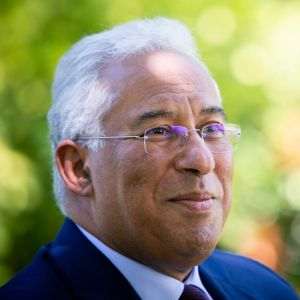

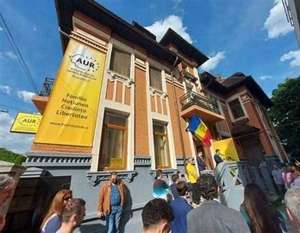


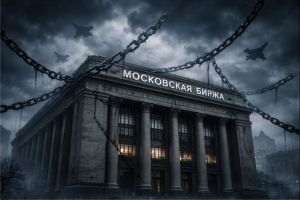

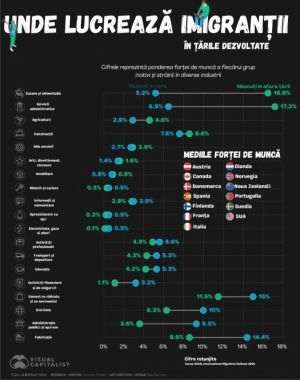

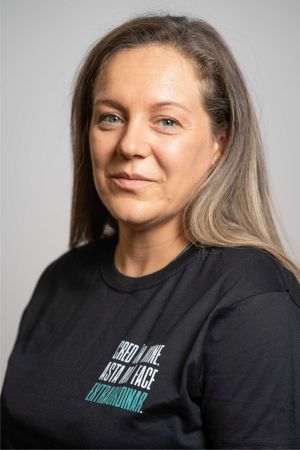










































1. si in engleza
(message sent by nicolas on 12.03.2014, 19:39)
esti la fel de bun economist si in engleza ca si in romana,,,s-au gindit sa te traduca si pe tine ca pe ceausesc..africanii...Mai da cum gestionezi tu actiunile investotorilor...ca sa faci dividende la moameni...ne spui si noua,,prostii care am cumparat actiuni la sif 3 dorind o dobinda mai buna decit banca,,,,mare MISEL,,,esti bade,,,chiar o sa urmaresc...evolutzia ta viitoare,,sunt sigur ca bine nu o sa-ti fieee..
2. Free shares cheaper than nothing !
(message sent by doru stoian on 14.03.2014, 14:12)
Romania gratis = priceless !
2.1. All = whole Romania, for 1 USDNew = 0,5 Yuro ! (response to opinion no. 2)
(message sent by doru stoian on 14.03.2014, 14:15)
China & India too expensive !